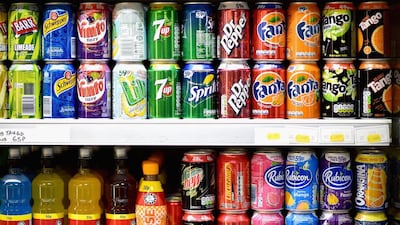Saudi Arabia will start levying the new excise tax on drinks containing added sugar before the end of this year, as the kingdom, the biggest Arab economy, continues to diversify its revenue streams.
Mohamad Al Jadaan, the minster of finance and the chairman of the kingdom's General Authority for Zakat and Tax (Gazt), has approved the amendments to the excise tax legislation, including the “implementation of excise tax on sweetened drinks” from December 1, Umm Al Qura, one of Saudi Arabia’s official newspapers reported on Thursday, citing a Gazt statement.
The kingdom, Opec's top oil producer and the biggest crude exporter int he world, said in May it would impose a 100 per cent tax on electronic cigarettes and a 50 per cent levy on drinks with added sugar, broadening the excise duty on similar products as it looks to expand its revenue base and cut its reliance on oil income. The latest statement from Gazt did not confirm if the tax would also be implemented on e-cigarettes from the same date.
The kingdom’s excise duties on cigarettes and other tobacco products as well as energy and soft drinks, have been in place since June 2017.
The country has introduced a number of new taxes and fees in recent years in line with Crown Prince Mohammed bin Salman’s economic transformation agenda. Although crude accounted for about two-thirds of the government’s earnings in 2018, according to Bloomberg, non-oil revenue has been growing steadily, jumping 46 per cent in the first quarter of 2019 compared with the same period last year largely because of higher income from taxes.
The six-member economic bloc of GCC pledged to introduce excise and other taxes including VAT, to boost non-oil revenues and reduce consumption of harmful products that cause health issues such as diabetes and obesity.
Each country is implementing taxes at different times, with the UAE imposing excise duty on certain items at the end of 2017. The Emirates is now considering the inclusion of more products on its excise tax list, according to an April statement from the Ministry of Finance.
Meanwhile, the electronic system for registering excise taxpayers in Oman will go live on Saturday. There will then be a 90-day grace period to allow people and companies to register for the tax, which will come into effect once the grace period ends.


